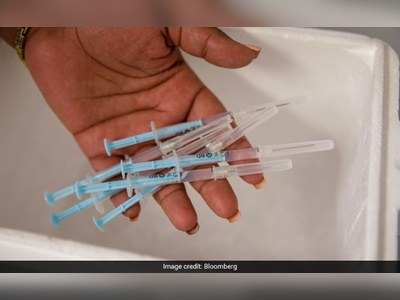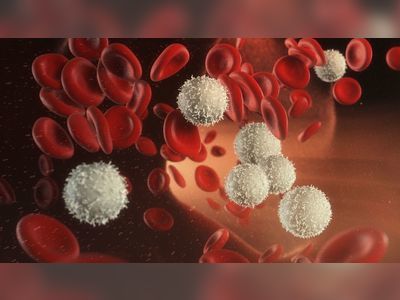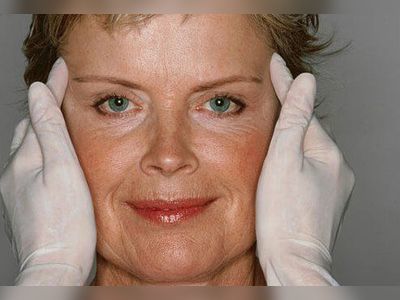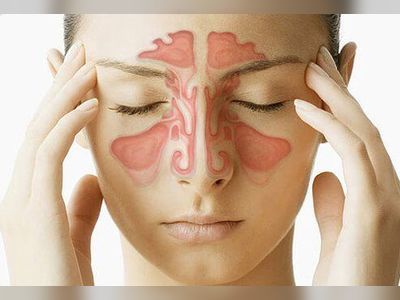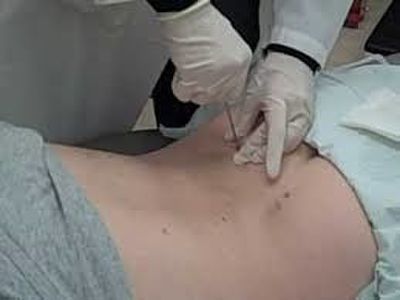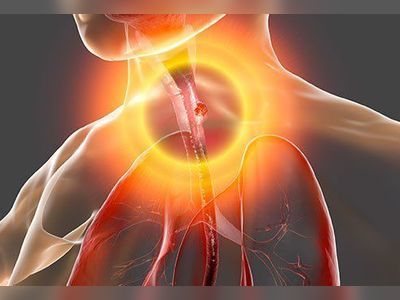
How Your Sex Drive Changes in Your 20s, 30s, and 40s
From day to day, you probably notice changes in your sex drive, brought on by everything from your cycle to a frustrating spat with your partner to exhaustion from working long hours. What you probably don't detect so easily is the way your libido changes as you get older. But it does, thanks to a host of factors.
"Sex drive does often decrease with age,” John Thoppil, MD, an Austin, Texas–based ob-gyn, tells Health. Of course, you won’t notice a dramatic difference in your libido as the calendar rolls past your 29th or 39th birthday. It’s more that the factors that set these changes in motion-like hormonal shifts, pregnancy, and increased family responsibilities-tend to happen as you transition from your 20s to your 40s.
What's driving your sex drive?
Many factors-some biological, some psychological-influence whether your sex drive is on full throttle or at a standstill at any age. Stress “is the biggest sex killer,” Jennifer Landa, MD, an ob-gyn and chief medical officer at BodyLogicMD in Orlando, Florida, tells Health. Anxiety and depression can also leave desire circling the drain. Frustratingly, many antidepressants that treat these conditions, as well as other medications, have the side effect of inhibiting sex drive too, says Dr. Thoppil.
Your feelings about your partner and your relationship can also affect desire. A strong relationship, and one that prioritizes sex, helps drive libido, notes Dr. Thoppil. Also important? Your lifestyle. Healthy habits, like eating a balanced diet, working out regularly, and getting enough rest, influence your mood as well as your overall health, says Dr. Landa.
Hormones are another biggie, says Dr. Landa. Levels of sex hormones such as testosterone (yep, women produce this too, in small amounts), estrogen, and progesterone all naturally start to dip as you move through the decades, and that plays a role in desire, arousal, and orgasm.
Bottom line: Libido is complex. “Sex is an elaborate cocktail of our identities, our feelings, our desires, and actions,” Shadeen Francis, a relationship therapist and author based in Philadelphia, tells Health. While there is no “normal,” certain predictable trends tend to sync with your 20s, 30s, and 40s.
Your sex drive in your 20s
Like so many other bodily drives and functions, your sex drive when you're 21 or 28 is typically pretty strong. “[Your] 20’s sex drive is usually rocking,” says Dr. Landa. That’s due to a combination of reasons. For starters, your relationships may be fresh and new, and as Dr. Thoppil points out, “desire is often strongest in a new relationship.” Plus, you’ve got biology on your side. “The biological drive to reproduce is in full force,” says Dr. Landa.
Tips for your best sex in your 20s: If your sex drive is low, it could be due to your birth control, says Dr. Landa. "It doesn’t have this effect on everyone, but some women will experience lower testosterone levels on the pill, which can lead to lower libido and even to vaginal dryness in some young women,” she explains. Consider checking in with your ob-gyn to rule out another health issue and opt for an alternate birth control method.
Your sex drive in your 30s
If your craving for physical intimacy dips during your 30s, don’t be surprised. Testosterone is on the decline during this life stage, for starters. “This dip can cause a natural decrease in sex drive,” says Dr. Landa. This is also usually a busy decade for women, full of career building, adulting, and responsibilities like parenting young kids. “These can be exhausting times, and many women would rather catch up on sleep instead of getting dolled up for a night of wild sex,” points out Dr. Landa.
Speaking of parenting, the 30s are a prime decade for babymaking. The hormone shifts that occur through each trimester and then during breastfeeding can also trigger a lack of desire. Add in the crazy fatigue many new moms deal with, and it makes sense that the desire you felt when you were baby-free is very different than your new mom libido.
Tips for your best sex in your 30s: It can be disconcerting for you and your partner if your sex drive changes. Remove the mystery by communicating openly, recommends Francis. “Being able to express your needs and negotiate them with your partner keeps your overall relationship feeling an intimate connection, even on those nights are when all you are interested in is a hand massage and an hour of alone time,” she says.
And don’t downplay the impact of stress, which could get in the way of intimacy. “Stress can suppress testosterone and elevate cortisol, which can interfere with testosterone,” says Dr. Landa. She recommends using basic stress reduction techniques (like yoga or meditation) as a first step.
It's also wise not to get too worked up if you're not having sex as often as you did in your 20s. By your 30s, you're more likely to be settled down with a steady partner. While the quantity of sex might be less frequent, you can make that up with the quality and depth of your connection.
You sex drive in your 40s
Hormonal changes can hit hard in this decade, as women enter perimenopause, the 5-10 year stretch before menopause sets in and your ovaries gradually stop producing estrogen. During perimenopause, hormonal dips are common. And those fluctuating hormones can affect your sex drive, mood, and even the sensation of sex and how it physically feels.
That's because when estrogen production slows down, your natural vaginal lubrication might too. “A drop in estrogen can make vaginal tissue more dry, and sex can be painful,” says Dr. Thoppil. Decreased levels of progesterone, which Dr. Landa calls the “calming” hormone, may lead to “heavier periods, more PMS, weight gain, moodiness, insomnia, and irritability,” she says.
But it's hardly all bad news. For many women, their 40s are a sexually liberating time of confidence and exploration. Kids may be older and more independent; careers are established. You know your body and what turns you on by now, and you're more likely to speak up about the strokes and touches you crave to bring you to orgasm. And by the time menopause happens (the average age is 51), there's another reason many women feel great sexually: no more birth control worries.
Tips for your best sex in your 40s: Francis advises anticipating that your body will evolve and responding with curiosity, not negativity. “Maintaining a relationship of exploration with your body gives you permission to find acceptance of what it is not, and find pleasure in what is,” she says.
If vaginal dryness and other perimenopause side effects have lowered your libido and it bothers you, Dr. Landa suggests seeing your ob-gyn. “Treatment with progesterone or testosterone or both in some women can help to improve sex drive,” she says. Keep in mind, however, that what you're experiencing could simply be a natural part of aging, and you can boost your libido by living healthy and feeling connected to your partner.




